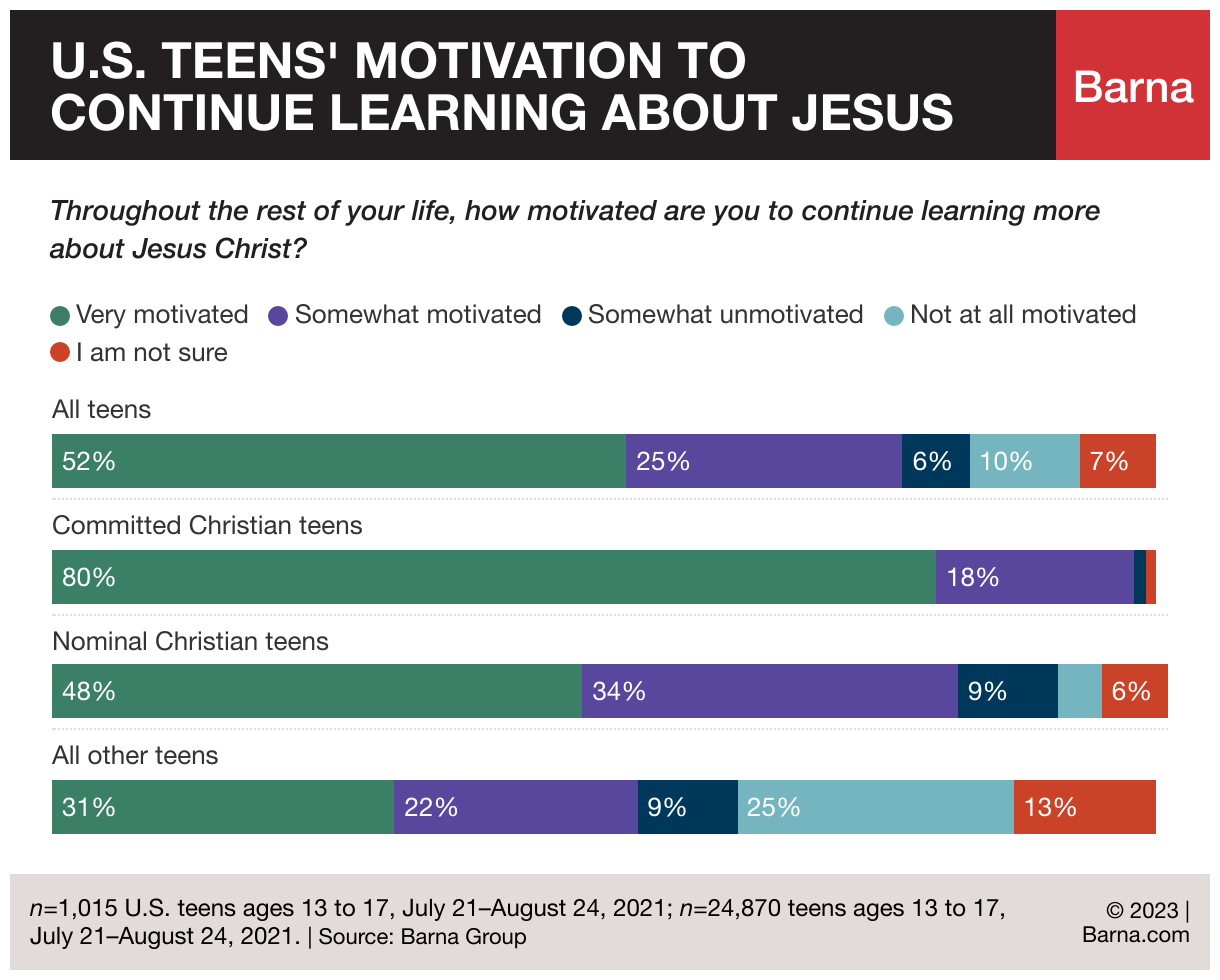What We Talk About When We Talk About "He Gets Us"
How the discourse surrounding a global marketing campaign became more interesting than the campaign itself.
Leading up to Super Bowl Sunday, much was made of the $100 million-dollar ad campaign that hoped to improve on over 2,000 years of bad PR Jesus gets from his followers.
Dubbed “He Gets Us,” the campaign set out to answer a fundamental question: “how did the story of a man who taught and practiced unconditional love become associated with hatred and oppression for so many people?” The ad campaign was then built around the answers elicited from survey results and focus groups all across the country, resulting in a series of videos with names like “The Rebel,” “The Influencer,” and “The Refugee,” all designed to demonstrate the relatability and accessibility of Jesus by reframing his story in contemporary language.
While this strategy isn’t especially innovative or groundbreaking, the campaign has proved divisive within the larger Christian community. What's particularly interesting about He Gets Us is the way it’s drawn criticism from both sides of the isle, something the campaign’s eponymous namesake had a bit of experience with in His day. As the ads rolled during the Big Game, many on the left took issue with the outrageous cost associated with advertising during the Super Bowl, claiming the money really could have been better spent elsewhere:

Conservatives, meanwhile, lamented what they deemed to be a misleading depiction of Jesus that diminished his divinity in a woke effort to make him more accessible:

(Before we continue, let’s all pause for a minute and admire these two tweets side-by-side, keeping in mind the great irony that both these critiques are so old that Jesus himself addressed them specifically in the pages of the Gospels.1)
I find it fascinating that both sides consider the campaign misguided, but for vastly different reasons. How can both sides watch the same ad for Jesus and come away with such disparate reactions?
My contention in this article is simply this: He Gets Us is primarily about none of the things being bantered about by either side. Both critiques ultimately fail to land because they begin by asking the wrong questions.
A Clear Agenda
To their credit, the people behind He Gets Us are very upfront about their agenda, to the point their website has a page helpfully titled “He Gets Us has an agenda.” They state that they’ve “done their homework on culture” and have found that many feel their “values, beliefs, and identities are under attack by the ideological ‘others’ around us,” which puts people instinctively on the defensive. And with everyone assuming a defensive posture, “the more ideologically defensive we become, the more we are willing to sacrifice things like kindness, patience, and the respect and dignity of others for the sake of victory — the righteous ends justifying the dehumanizing means.” Ultimately, their goal is “to move beyond the mess of our current cultural moment to a place where all of us are invited to rediscover the love story of Jesus.”2 Once an inquiring mind logs onto HeGetsUs.com, there’s an option to ask questions, chat online, and link up with a local Alpha meeting. I happen to know the local Alpha group that meets near my home has received multiple inquiries stemming from the campaign over the past few weeks, so whatever anyone's opinions about it so far, it’s clearly reaching its intended audience with some degree of success. But why is this campaign succeeding where others have failed?
The Generational Divide
It’s worth mentioning there are a few notable generational wrinkles to this as well. While many millennials have been trending away from religion prior to COVID (though there have been some signs of that turning around in the past year), earlier this month Barna published their findings stating “Over Half of Gen Z Teens Feel Motivated to Learn More About Jesus.” According to the chart below, an estimated 53% of zoomers are interested in learning more about Jesus at some point in their life, with only 25% reporting no motivation at all. Contrast that with the fact that many millennials between the ages of 23 and 38 are now almost as likely to say they have no religion as they are to identify as Christians.3
Given this data, it’s no surprise to see the marketing strategies deployed by He Gets Us are targeting a younger audience. The campaign wants to be seen as a viral movement, and in the world Gen Z has grown up in, this is what a movement looks like: ubiquitous advertisements, simple branding, and a clear message to rally around.
Make no mistake, this campaign looks and feels exactly the way its backers intended it to.
Evangelism By Any Other Name
As mentioned earlier, marketing Jesus is not a new phenomenon. What’s interesting about this attempt is exactly what is being marketed, which in this case is the utilitarian value of Jesus by virtue of his relatability. The tagline implies the backers of this campaign perceive the most important message for the non-believer to hear about Jesus is how similar he is to them. On the one hand, this can be read as merely hoping to meet people where they are; on the other hand, it could be seen as yet another me-centric Gospel presentation. It’s difficult to tell just how self-aware the campaign is on this point, which I think is part of what drives the skepticism of some believers when considering whether the campaign will turn out to be a net positive. There’s also the issue of further dissociating Jesus from his church, which comes up with some frequency in the marketing. There are other issues many have found with the campaign’s talking points. But none of these represent the heart of the matter.
Whether we know it or not, when we talk about He Gets Us, what we’re really talking about is whether or not evangelism is just marketing by another name. Should church function like a business, or are the two fundamentally incompatible? Does using marketing strategies compromise the integrity of the Gospel message? And if evangelism is different than marketing, how is it different? In a world where everything has been commodified, canned and made available with free two-day shipping, how do you reach people with the message of the Gospel in a manner that captures all its intricacies in enough time for it to still matter?
In talking with friends about the campaign, I was reminded of a great quote by D.L. Moody: “It is clear you don’t like my way of doing evangelism. But I like my way of doing it better than your way of not doing it.” Fair enough then. But we cannot escape the inevitability that, as Tozer once said, what we win people with is what we will win them to. I have my suspicions that more than a few people will have their interest piqued by the campaign, only to be disappointed when they visit their local church community and discover “He gets us” means something different than “He unquestioningly affirms all our life choices.” At any rate, the fact remains that debating the intentions and merits of the campaign will do little to serve anyone right now. For good or ill, the message has gone out that Jesus does indeed get us. The responsibility of walking with those responding to the campaign will now fall squarely on the shoulders of the Alpha leaders and pastors of local churches around the world, ready or not.
Conclusion
As followers of Jesus, we do well to join the apostle Paul in celebrating that Christ is proclaimed, regardless of the intentions behind the message. Writing to the church at Philippi while imprisoned in Rome, Paul was aware the Philippians were in the middle of dealing with some degree of disunity within their congregation. He noted that some preach the message of Christ “from envy and rivalry, but others from good will. The latter do it out of love, knowing that I am put here for the defense of the gospel. The former proclaim Christ out of selfish ambition, not sincerely but thinking to afflict me in my imprisonment.” And what does he conclude about this less-than-ideal scenario? “What then? Only that in every way, whether in pretense or in truth, Christ is proclaimed, and in that I rejoice.”4 Paul sees an opportunity in giving Jesus airtime, even if it doesn't look exactly the way he'd like. We can strive to do the same in our interactions with others.
The truth is He Gets Us does not depict Jesus completely; at times it is debatable whether it even depicts Jesus accurately. But it does proclaim Jesus nonetheless, and in doing so has created a window of opportunity to reach the lost and disenchanted for those who have eyes to see it. And at a time in history where such opportunities are rarely offered to the Christian, we should do what we can to make this one count.
In the first case, Judas Iscariot says almost these exact words in John 12:4-6. In the second, consider Jesus’ attitude towards accusations of him being “worldly” in Matthew 9:10-13: “And as Jesus reclined at table in the house, behold, many tax collectors and sinners came and were reclining with Jesus and his disciples. And when the Pharisees saw this, they said to his disciples, “Why does your teacher eat with tax collectors and sinners?” But when he heard it, he said, “Those who are well have no need of a physician, but those who are sick. Go and learn what this means: ‘I desire mercy, and not sacrifice.’ For I came not to call the righteous, but sinners.”
These are loaded statements, and I could spend the rest of this post attempting to unpack what lies behind them. But I have bigger fish to fry here, and others have traversed that ground elsewhere anyway.
Information provided via the Pew Research Center.
Philippians 1:15-18.




agree with conclusion and with moody. this is a shot that lifts up The Name whose expense-misuse comment is perhaps no different than judas' response to mary's perfume. consistent with moody, all public exposure moneys are expended because christians generally are not doing the job of the great commission which requires no financial expenditure. (prayer for HS revival should recognize the same failure). i've gotten a first-hand report from the local alpha ministry that response is exciting.
so exciting to see and hear the Name of Jesus proclaimed in a typically secular and sometimes downright evil medium.